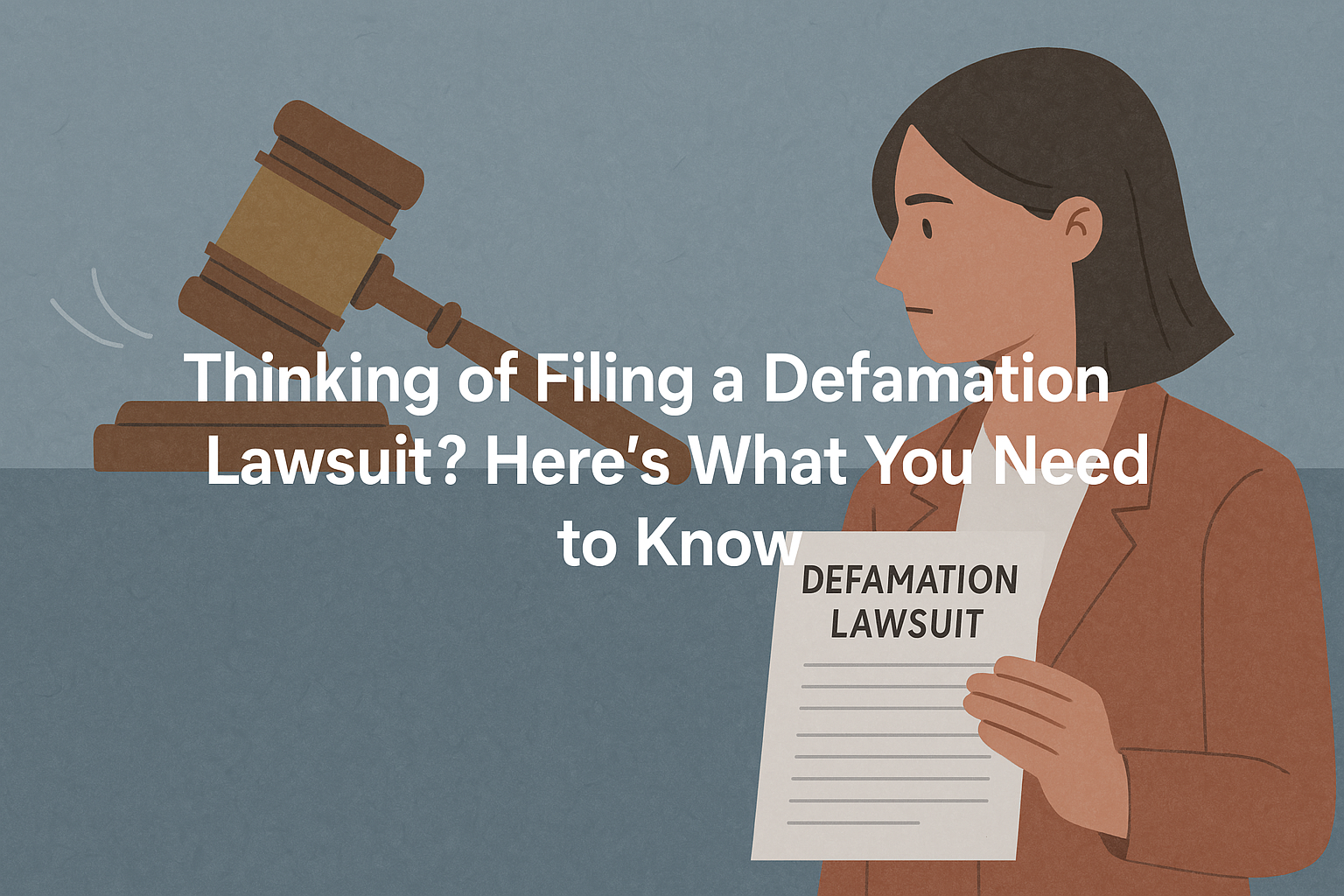Table Of Content
What Is Defamation?
Defamation is the act of making a false statement that harms someone’s reputation. There are two primary forms:
- Libel – Written or published false statements (e.g., social media posts, blogs, reviews)
- Slander – Spoken falsehoods (e.g., public comments, interviews)
To succeed in a defamation lawsuit, the statement must be proven false, published to others, and cause measurable harm.
Should You Sue for Defamation?
Filing a defamation case is a serious legal step. While it can bring justice, it’s essential to evaluate whether the damage warrants legal action.
Ask Yourself:
- Has my reputation, income, or safety been harmed?
- Was the statement clearly false and presented as fact?
- Is the author identifiable or anonymous?
- Has the defamatory statement been widely shared?
If the answer to most of these is yes, you may have a case worth pursuing.
“Injustice anywhere is a threat to justice everywhere.” – Martin Luther King Jr.
Key Legal Elements in a Defamation Case
When filing a defamation lawsuit, the plaintiff (you) must prove the following:
- A false statement was made
- The statement was presented as fact
- It was communicated to a third party
- It caused reputational or financial harm
- It was made negligently or with actual malice (depending on your status)
Public vs. Private Individuals
- Public figures must prove actual malice (the defendant knew the statement was false or acted with reckless disregard)
- Private individuals need to prove the defendant was negligent in verifying the truth
How to Prepare for a Defamation Lawsuit
Before you file, document everything. The stronger your evidence, the greater your chances of success.
Collect the Following:
- Screenshots of the defamatory content
- URLs and timestamps
- Names, usernames, or IP addresses
- Witness statements
- Proof of harm (lost business, emotional distress, etc.)
Use tools like Wayback Machine to preserve online content before it’s deleted.
Steps to Filing a Defamation Case
Step 1: Speak With a Defamation Attorney
Laws vary by state and country. An attorney will help you evaluate your claim, file in the proper jurisdiction, and outline next steps.
Step 2: Send a Cease and Desist Letter
This formal notice demands the defamatory party stop their actions and retract statements. It may lead to voluntary removal.
Step 3: File a Complaint in Civil Court
If the offender doesn’t comply, your lawyer will file a defamation lawsuit. The process includes:
- Complaint and summons
- Discovery (evidence exchange)
- Depositions and motions
- Settlement or trial
Step 4: Seek Damages
Types of compensation you can pursue:
- Compensatory damages – To cover lost income, emotional distress, and reputational repair
- Punitive damages – To punish malicious or reckless defamation
- Injunctive relief – Court-ordered content takedown
Defamation Defenders Can Help
At Defamation Defenders, we offer full-service support for defamation cases, from reputation analysis to content takedown and legal referrals.
Our Solutions Include:
- Evidence collection & documentation
- Cease and desist drafting
- Search engine suppression campaigns
- Legal team coordination and expert witness support
📞 Request Your Free Confidential Consultation
FAQ: Filing a Defamation Lawsuit
Statutes of limitations vary. In most U.S. states, you have 1 to 3 years from the date the statement was published.
Libel is written or published defamation. Slander refers to spoken statements.
Yes. You can subpoena platforms to identify anonymous users if your claim is valid.
Even partial truths may be defamatory if they create a misleading or damaging impression.
Under Section 230, platforms may not be liable. However, a court order can compel removal in many cases.
Absolutely. Companies often pursue lawsuits over fake reviews or false allegations of criminal activity.
It depends on the severity of the damage. Awards range from small settlements to multi-million dollar judgments.



